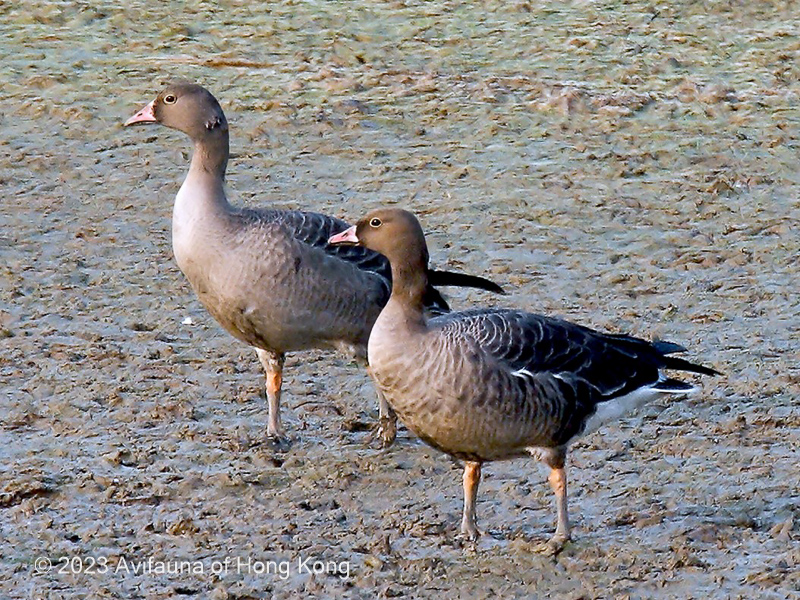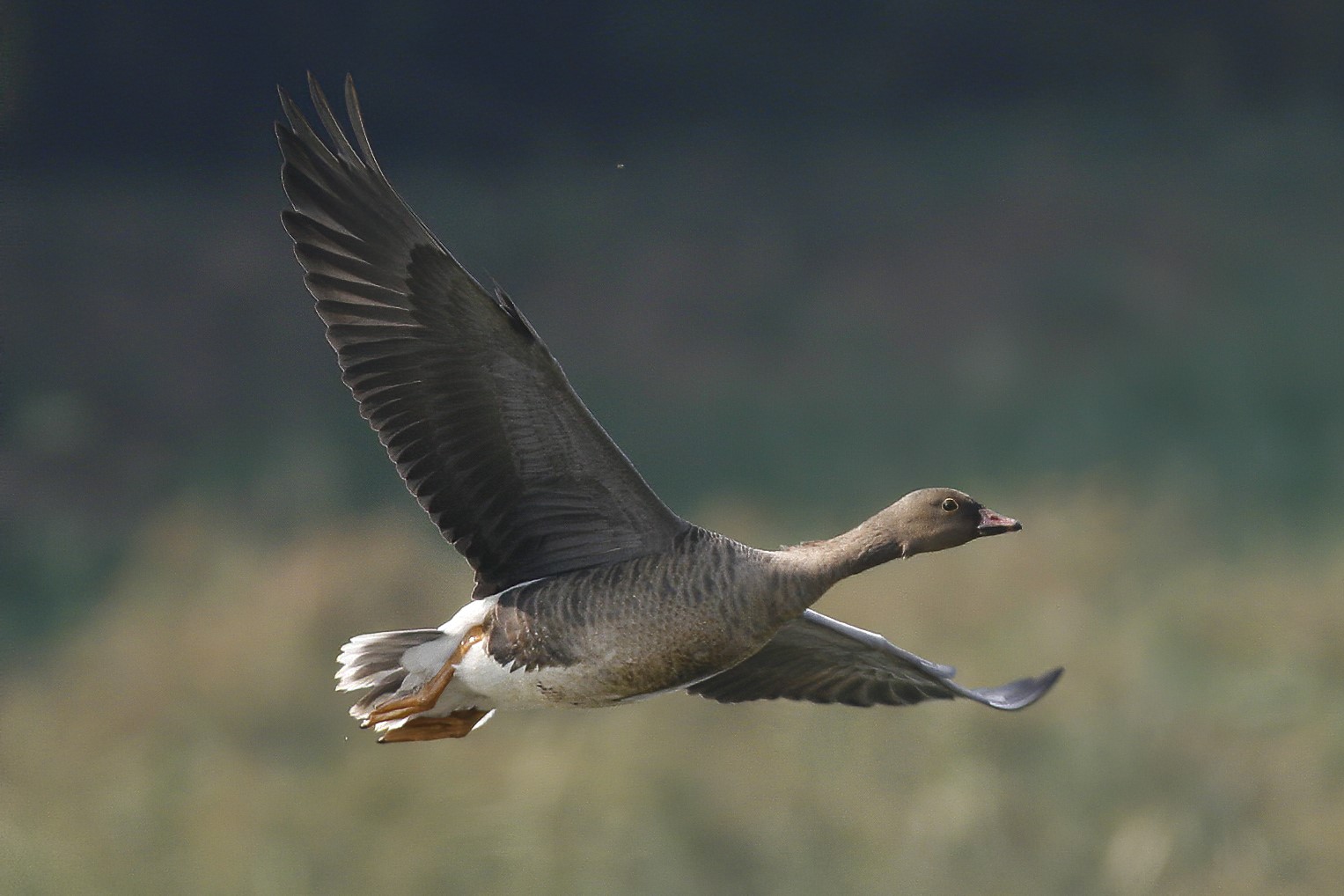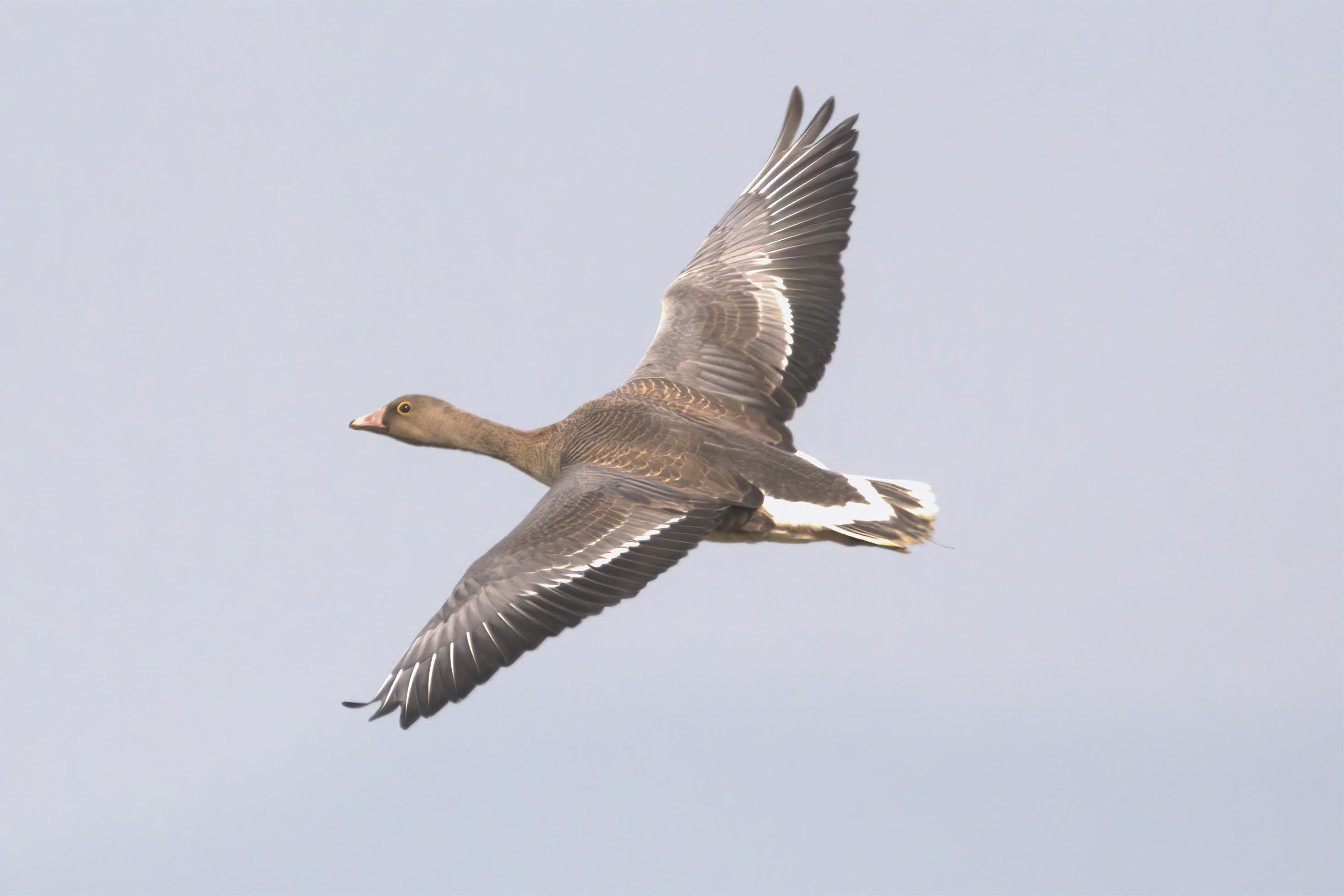Lesser White-fronted Goose Anser erythropus 小白額雁
Category I. Accidental.
IDENTIFICATION

Nov. 2006, Michelle and Peter Wong. Juveniles.
53-66 cm. Similar to Greater White-fronted Goose but differs as follows: slightly smaller with an obvious yellow orbital ring, more extensive white on the forehead (when fully developed extends to crown above eye), smaller bill that is always pink and long wings clearly extending beyond the tail.

Nov. 2006, Martin Hale. Juvenile.
In flight shorter neck and more compact structure may be apparent. Juvenile lacks irregular barring on belly.

Oct. 2023, Benjamin Li. Juvenile.
This fresh juvenile has little or no white on the forehead and buff fringes to the scapulars and median coverts.
VOCALISATIONS
Higher in pitch than other grey geese on the HK List.
DISTRIBUTION & HABITAT PREFERENCE
The two birds utilised both freshwater and brackish marsh areas.
OCCURRENCE
The sole record is of two juveniles at Lok Ma Chau MTRC Ecological Enhancement Area and Mai Po NR from 6 November 2006 to 29 March 2007 (Leven and Leader 2010).
BEHAVIOUR, FORAGING & DIET
No observations.
RANGE & SYSTEMATICS
Monotypic. Breeds across northern Eurasia inside the Arctic Circle from Norway east to the Sea of Okhotsk in three discrete areas, and winters in southeast Europe, south of the Caspian Sea and east Asia, including China, South Korea and Japan (Carboneras and Kirwan 2020). In China winters along the middle and lower reaches of the Yangtze floodplain (Liu and Chen 2020), in particular Dongting Lake.
CONSERVATION STATUS
IUCN: VULNERABLE due to a rapid population decline in its key breeding areas in Russia. Population size 16,000 to 27,000 and decreasing.
Carboneras, C. and G. M. Kirwan (2020). Lesser White-fronted Goose (Anser erythropus), version 1.0. In Birds of the World (J. del Hoyo, A. Elliott, J. Sargatal, D. A. Christie, and E. de Juana, Editors). Cornell Lab of Ornithology, Ithaca, NY, USA. https://doi.org/10.2173/bow.lwfgoo.01
Leven, M. R. and P. J. Leader (2010). Lesser White-fronted Geese Anser erythropus at Lok Ma Chau. The first Hong Kong record. Hong Kong Bird Report 2005-06: 182-184.
Liu, Y. and Y. H. Chen (eds) (2020). The CNG Field Guide to the Birds of China (in Chinese). Hunan Science and Technology Publication House, Changsha.

